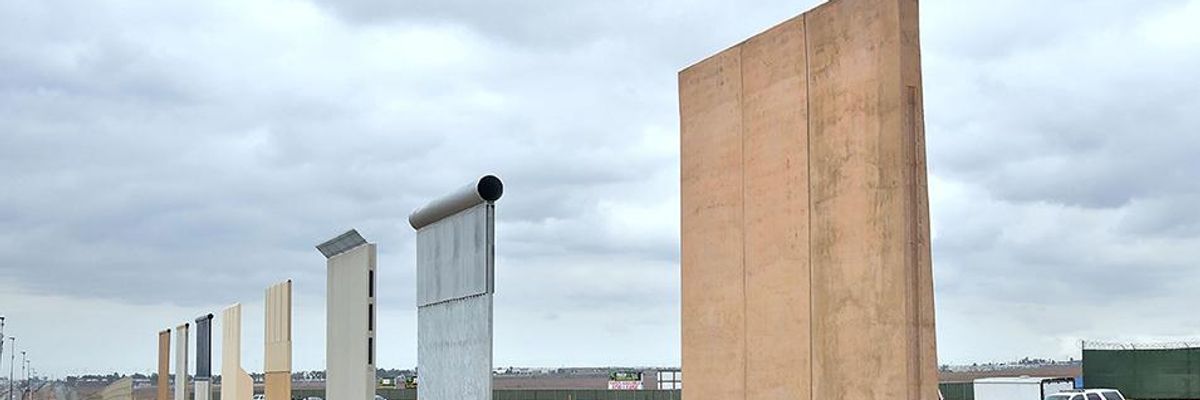Donald Trump insists that the border wall he wants built will be nothing less than beautiful. He has assured us that the latest version, a series of steel slats topped by triangular spikes, will fulfill the non plus ultra of architectural design: it will be "totally effective while at the same time beautiful!" "Boom. Bing. Done."
Hardly anyone believes it will be effective. Not against terrorism, not against drug cartels, and not against migrants. And hardly anyone believes it will be beautiful, either. But while a host of arguments have been raised against the wall's efficacy, almost nothing has been said about its supposed aesthetic virtues.
It is such a ridiculous claim that it hardly merits a response. But there's an insidious reason why Trump's inflated claim is not addressed. For the most part and regardless of political orientation, we've stopped thinking about beauty as an important public value. Having barred beauty from the public sphere, we've forsaken our ability--and responsibility--to debate claims for and against it.
It is true that Trump publicly proclaims many things as beautiful: coal, chocolate cake, military equipment, Ted Cruz, and an idealized version of the female body. He is capacious, even promiscuous, in his use of the word. But these proclamations, though tweeted to millions of people, are nothing more than a private shorthand for his own individual experience, mostly a way of saying, "Wow! Awesome! This is what I want and like."
To use "beauty" as a signifier only of personal pleasure and desire is a corruption of the power and role of beauty. But it's one that happened long before Trump. And it's now so tightly stitched into our cultural trappings that it hardly registers as problematic and in need of correction.
It was the philosophers of the 18th century Enlightenment who began to loosen the threads that secured beauty as a shared, public value. Of concern to them was clarity of thought; toward that end they sought to know whether beauty was an objective quality, located in things, or a subjective response to things, dependent on something called "the imagination." There was no watershed moment in the debate but the long back-and-forth slowly eroded confidence in ever reaching a definitive answer.
Finally, the tie went to the runner, to what became one of the defining features of the new faith of the modern world: a fascination with and reliance on the subjective experience of the individual. It was a direction taken by psychology, religion, literature, and the arts. And it was enough to vitiate the meaning of beauty and the role it would play in the modern world.
Though the philosophers put some qualifiers on subjective judgments about beauty--judgments had to be disinterested, immediate, and neither purely sensual nor simply cognitive--these attributes were soon disregarded. Finally, aesthetic judgment became a matter of "the eye of the beholder" and the pleasure gained by the beholder. It was a particularly potent form of individualism.
And so we arrive at Trump's idea of beauty, a decidedly non-cognitive, sensual, and interested one. But it must be admitted that his notion is not simply a reflection of a limited descriptive vocabulary or a preference for the shallow end of the pool. Trump's understanding of beauty aligns with the narrow, highly individualistic way it has been defined in the modern world.
And yet it is possible that beauty as a public value has not been completely compromised. Because even those who believe that beauty is only in the eye of the beholder know that the proposed wall is unbeautiful through and through--in its design and in the whole inhumanity of the project. In spite of the adoption of subjectivity and the reduction of beauty to pleasure and personal taste, we know on the gut level that Trump trusts so often that the wall is ugly.
It is on the strength of our reaction to things like Trump's wall that we can reignite a public conversation on beauty. And it is on a shared reaction to the disfigurement of habitats, the damaging of ecosystems, and suffering in all its forms that we can rebuild our understanding of beauty as a shared value, of lasting importance to the way we shape our communities and our relations with life. Together we can say, "The wall is not beautiful." Boom, bing, done.
Let the recovery of beauty begin.
